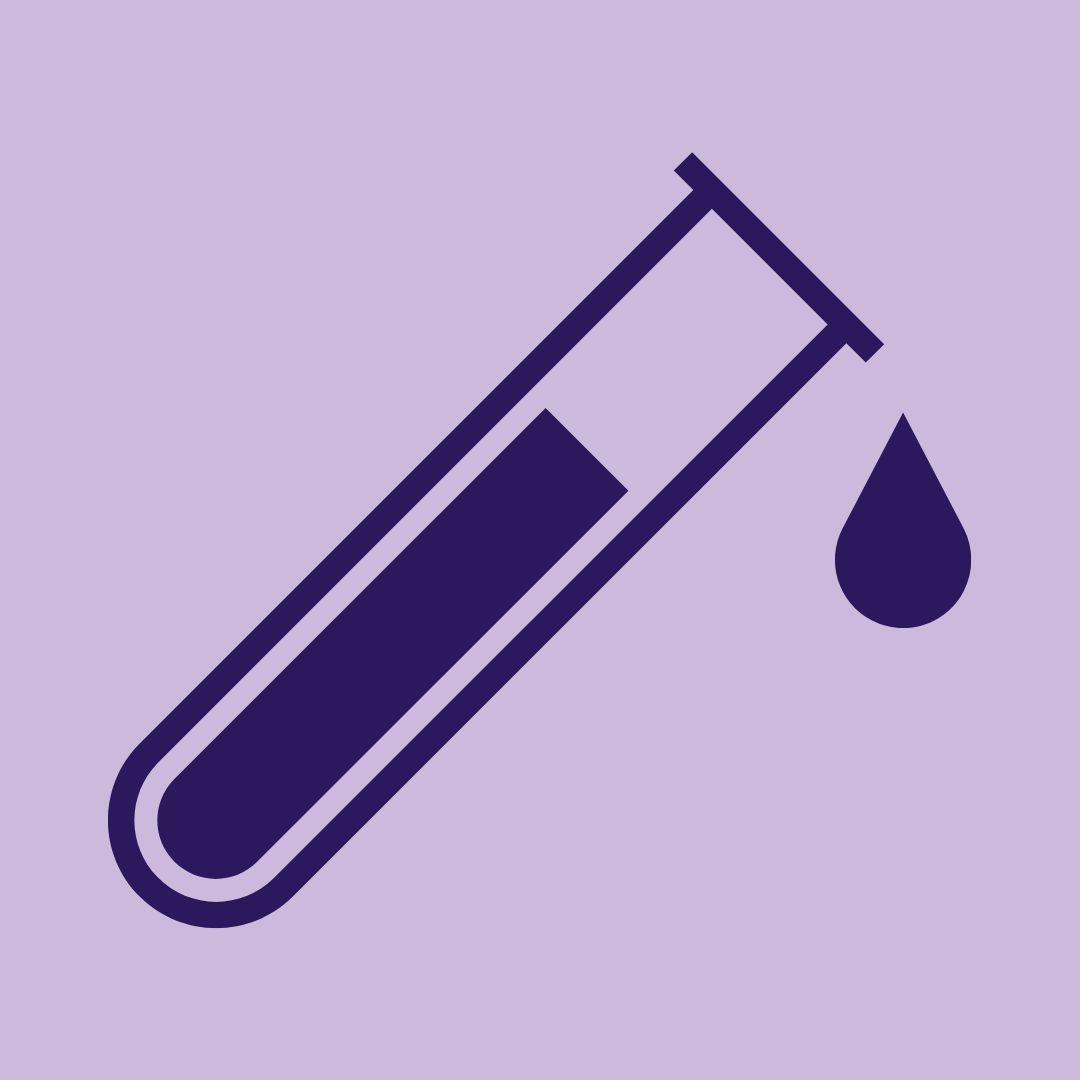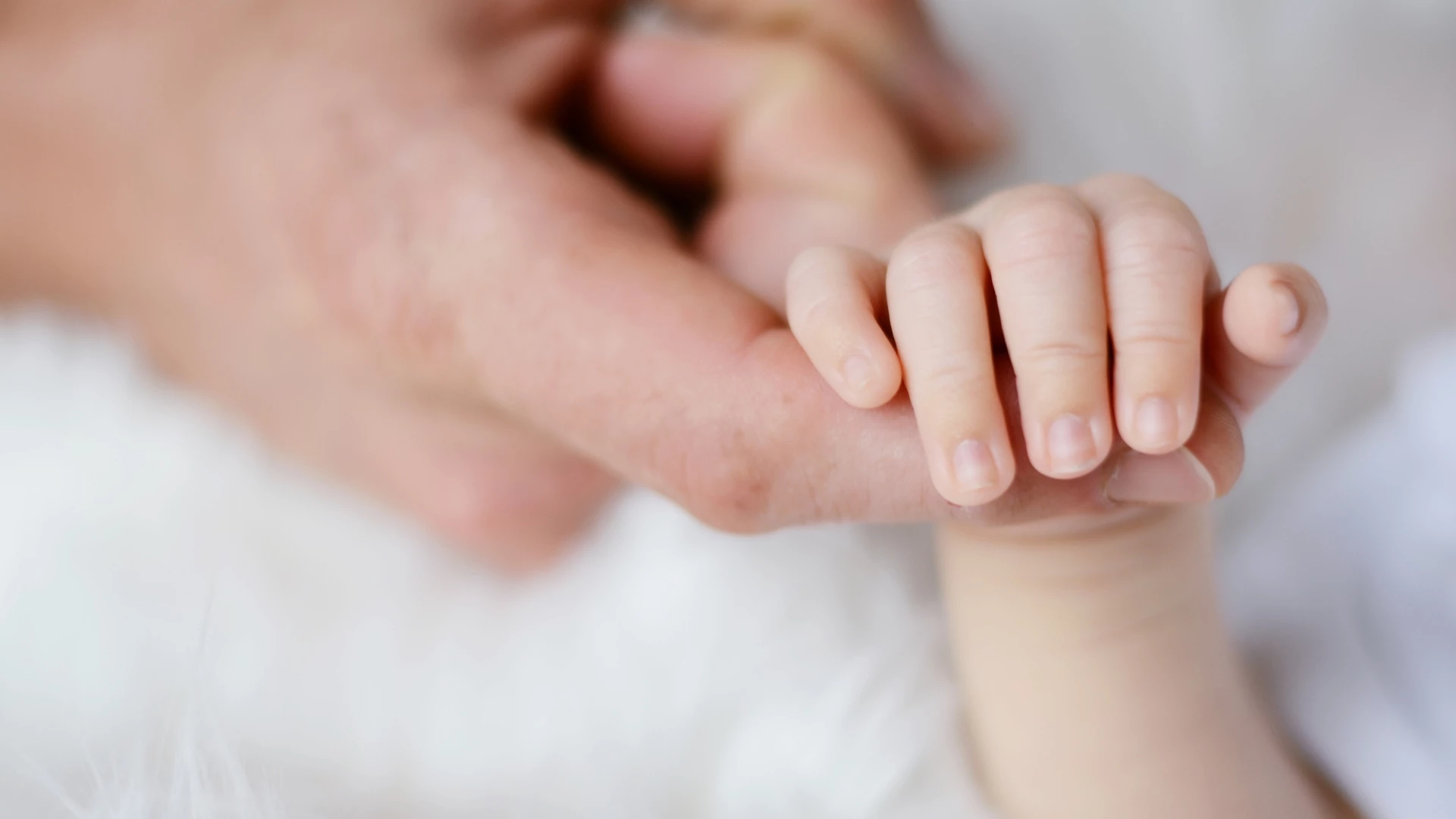You’re a hero. It’s in your DNA.
You can help pioneer new treatments for millions of people by helping us unlock the power hiding in your DNA. Together with the NHS, NIHR BioResource is creating a nationwide movement for ages 0 - 15 to help health research - everything from better understanding mental health to combatting diabetes.
All you need to do is spit in a tube.
Be a part of our health research movement for ages 0-15
How it works
Each child or young person donates a saliva (spit) sample and answers a health and lifestyle questionnaire.
By studying thousands of DNA samples together with health information, scientists can begin to see the big picture of how our genetics and our environment influence our health. We also have dedicated research programmes for children with certain conditions. Read our FAQs for more information.
There are 5 steps to take part:
-

Register your interest online
Share a few details with us to get started
-

Sign consent forms
Online or paper option available
-

Complete a short health and lifestyle questionnaire
Online or paper option available
-

Spit in the tube we send you in the post
-

Take part in research!
Download our Participant Information Sheets to find out more - please read these carefully. Please use the 'join now' button to complete forms online or to request paper forms. If you require this information to be translated into another language or in a different format, please contact us.

Information sheet and consent form for parents and guardians

Information sheet for ages 3 to 5

Information sheet & assent form for ages 6 to 8

Information sheet & assent form for ages 9-12

Information sheet & assent form for ages 13-15

Saliva /spit kit instructions sheet

How to sign up - 1 page summary
If your child is aged 0-2 years, there is no separate information sheet. Please only refer to the Parent Information Sheet.
Who we are
Our DNA can help to decipher some of the most pressing health challenges we face. Most diseases start in childhood, but most health research is carried out in adults. D-CYPHR wants to change this by supporting health research for ages 0 – 15, pioneering new treatments and creating better care for children and the adults they will become.
We explore two key things for our health: our genetics and our environment. Together these can explain why we get sick and what might help.
Contributions by young heroes today could provide clues for diabetes, mental health conditions, heart disease, rare diseases, immune conditions (and many more).
We want to make it easier for families to get involved with health and genetics research studies. Families with children and young people aged 0 – 15 can help from home.
Our partners
The project is led by the National Institute for Health and Care Research (NIHR) BioResource in partnership with the NHS and the University of Cambridge.
We work with hospitals and NHS trusts, and we are proud to be partnering with the Black Health Initiative (BHI), Caribbean & African Health Network (CAHN), South Asian Health Action (SAHA) and Inclusive North.
If you’re a community organisation or charity interested in working together to engage your audience in health research, please contact us on: [email protected]

1.7 million children and young people in England have long-term health conditions
But research can help. From improvements to how diabetes is treated in children, findings for cystic fibrosis, to the national roll-out of whole genome sequencing for babies and children in intensive care - new discoveries are being made all the time. You can be part of it!

Working with schools
We are working with a variety of schools across England to spread the word about children's health research with help from students, parents and teachers.
Schools
Ambassadors
We’ve been working with young people, parents and schools for two years to create D-CYPHR. This is a health programme made with and for children and young people.
Guardians and young participants can join the ambassadors to shape our work.
Young and Parent Ambassadors
FAQs
For complete and detailed information on the programme please download our Participant Information Sheet for Parents and Guardians.
D-CYPHR needs volunteers with and without health conditions to better understand childhood health. Both groups will provide invaluable insights.
One of the most important groups in any research study is the one called the ‘control’. This is a group of individuals with no specific disease who act as a comparison group for people with a known illness. By having a ‘control group’, researchers can compare different things in the ‘disease’ and ‘control’ groups to understand what is different.
Any child under 16 can join D-CYPHR, but we do have research programmes specifically designed for children with Sickle Cell/Thalassaemia and Inflammatory Bowel Disease. If your child has one of these conditions, please email: [email protected] to find out more about taking part.
Any child or young person in the UK can help by joining online.
We need to learn a lot more about childhood health. We also need to understand how genetics and environmental factors affect children as they grow and develop.
Research into the origins of disease has revealed that most diseases start in childhood, yet most health research is carried out in adults. We are missing clues and opportunities to help children and the adults they will become.
Researchers want to explore the genetics of a range of diseases to understand more about:
- Developing new treatments for people and making these more individualised
- What causes illnesses, and how to develop better treatment and care
- How to identify illnesses early, avoid unnecessary medical tests and help people access treatment and support sooner
This could make healthcare better for everyone.
Genetic research is seen as one of the key opportunities to transform medicine and improve health in the coming years. A lot of progress has been made already. We can now carry out rapid tests for children with diabetes to select which medication will work best for them, avoiding daily injections for many.
Genetics plays an important role in many childhood diseases. For example, we know that genetics can affect the likelihood of getting infections as a child or developing mental health problems early in life.
Our bodies are made up of millions of cells. Each cell contains DNA, which provides the cells with instructions on how to work.
DNA also determines things like your hair and eye colour. Each piece of information is carried on a different section of DNA – these sections are called genes. The study of genes is called genetics.
Every second of every day your cells are using the instructions from your genes to keep your body working. The genes tell your cells which molecules to make – the central process to start all the proteins, antibodies, hormones and other things your body needs. This is why genes are so important to health research.
Every human has unique DNA (except for identical twins). Your unique DNA and genes will influence what keeps you healthy.
When we talk about ‘environment’ we mean the things that make up your day-to-day experiences – it can include things like what part of the country you live in, if its rural or in a city, the food you eat, your family life or school. Research shows that a person’s genetic makeup can affect how they interact with different environments.
Once you turn 16, you can decide if you would like to join the NHIR BioResource as an adult. If you would like to take a look at what you would be consenting to after you turn 16, click here.
By joining D-CYPHR at the NIHR BioResource, young volunteers will be:
- Helping scientific research into childhood and adult diseases such as diabetes, heart conditions, mental health conditions, rare diseases, immune conditions and many more! Today there are around 1.7 million children and young people in England with a long-term health condition, and one in six children could have a probable mental health condition. Your contribution will be helping valuable research.
- Joining a community of health pioneers: we will share news and milestones on the project as it develops.
We currently cannot provide information on your genetic data or provide health assessments.
Although this is a childhood health research programme, the research may span age groups, or relate to conditions like diabetes or Inflammatory Bowel Disease which occur in children and adults.
It is hoped that the research conducted today will benefit the young people participating in their future adult lives, as well as future children to come.
When you join, we will ask permission to securely access health, education and social care records, to ensure accurate research.
We will only request specific information from these records when needed and only to permitted staff. Best ethical and legal practice will be followed to ensure your information will be handled in confidence. Access to personal details will only be available to necessary members of the NIHR BioResource and regulatory authorities.
We are regulated by the NHS Health Research Authority. The NIHR BioResource is compliant with the NHS Data Security & Protection Toolkit, which is used to ensure organisations handling patient data are doing so responsibly.
Participants are free to withdraw at any time without giving a reason.
There are two types of withdrawal you can choose from (‘no further contact’ or ‘no further use’).
No further contact withdrawal
Please request this if you and your child choose to stop further contact with us but would be happy for us to continue research with their sample. If you choose a ‘no further contact withdrawal’, we will continue collecting of information about your child’s health from central NHS records, their hospital, their GP, and also information from social care and educational records. However, we will stop contacting you to invite your child to take part in further research studies.
No further use withdrawal
Please request this if you would like us to stop looking at your child’s information after the point of your withdrawal. We will destroy your child’s remaining sample and will stop any further contact with you. However, we are unable to remove any information that has already been collected about your child up until the point of your ‘no further use’ withdrawal.
If you and your child agree that they can join, we will:
- ask parents/guardians to read and sign a consent form on behalf of their child or young person (online or paper)
- ask children and young people who are able, to sign an assent form as well (online or paper)
We have assent forms available for ages:
- 6 – 8
- 9 – 12
- 13 – 15
Babies and children aged 0 – 5 do not need an assent form.
If you have a question about child assent please contact us by email: [email protected]
Once your child has joined D-CYPHR, the data, sample and information is stored securely for studies. Researchers must formally apply to the BioResource to use data, are fully vetted and agree to strict protocol. Your child may also be invited to specific studies if they match the criteria the researchers are looking for, such as genetic profile (from your DNA sample), or details about your health and lifestyle (from your questionnaire answers). You will be given all the necessary information on each study when invited and can decide to take part or not, without affecting your status as a D-CYPHR volunteer.
The donated saliva sample will be assigned a unique study number and will be stored in a laboratory. The saliva in the sample pot will be analysed by extracting the DNA to get a reading of the genetic profile. Any remaining DNA or saliva will be stored at the laboratory for future use by the programme.
DNA samples will be stored and permitted researchers may seek access to samples and related data, but you and your child’s personal details will never be released to researchers without your knowledge. Samples will be kept in secure locations.
Best ethical and legal practice will be followed to ensure your information will be handled in confidence. Samples will be labelled with a unique sample study number and information from genetic and other tests will be stored separately from personal details in secure databases. Access to personal details will only be available to necessary members of the NIHR BioResource and regulatory authorities who check that this study is being carried out correctly.
NIHR BioResource volunteers have contributed to many important research studies, including whole genome sequencing for babies and children in urgent care and the world's first transfusion of lab grown red blood cells. It now has over a quarter of a million volunteers who contribute to valuable health research, and it works with NHS trusts across England.
When joining D-CYPHR, children and young people will be asked to provide a saliva (spit) sample by dribbling around 2ml of spit into a collection tube.
If your child is currently too young, and does not dribble enough in their normal activity to provide a saliva sample easily, that is not a problem at all. If you are happy, you can still consent for them to join D-CYPHR and we will contact you in a couple of years to request the sample.
Please let us know at [email protected] if you would like to delay your child’s saliva sample collection.
This research is about all of us. Before study, each sample and health information is depersonalised (personal details removed). While you won’t find about your own child's health, we will keep you updated with news as the programme goes on, and you will be helping millions of families affected by serious illness.
You can also join through an in-clinic appointment at select local BioResource centres. At some of our centres you can donate a blood sample if that is your or your child’s preference.
Email [email protected] to learn more about in-clinic appointments.
Our activity is regulated under the NHS Health Research Authority and has been reviewed and given a favourable opinion by an independent Research Ethics Committees (RECs). See our Governance and Ethics page for full details: https://bioresource.nihr.ac.uk/about-us/governance-and-ethics/
When you join D-CYPHR, your saliva sample is stabilised and can only be used for DNA preparation. Your sample will have a basic genetic analysis (genotyping) done and is then stored securely for studies. The tool used for genotyping is a standard research tool with markers across the human genome. We use this standard tool so that the data is comparable to other large research cohorts across the UK.
Whole genome sequencing may happen if your sample helps a D-CYPHR study where this level of analysis is needed. However, whole genome sequencing is not routinely done for all D-CYPHR samples that are returned.
After genotyping, the data is stored for future research. BioResource staff are not actively analysing this data and are not looking for specific genetic signatures or testing for any known genetic diseases. The resource is made available for specific research questions and researchers are asked to confine their analysis of samples to those genetic areas.
If you decide to give a blood sample when you join D-CYPHR, a phlebotomist will take three vials of blood. One will be used to create serum, one will be used to create plasma, and one for DNA.
Your DNA sample will have a basic genetic analysis (genotyping) done and is then stored securely for studies. The tool used for genotyping is a standard research tool with markers across the human genome. We use this standard tool so that the data is comparable to other large research cohorts across the UK.
Your serum, plasma and DNA will be stored and available for future research by collaborators that submit an application to the BioResource.



